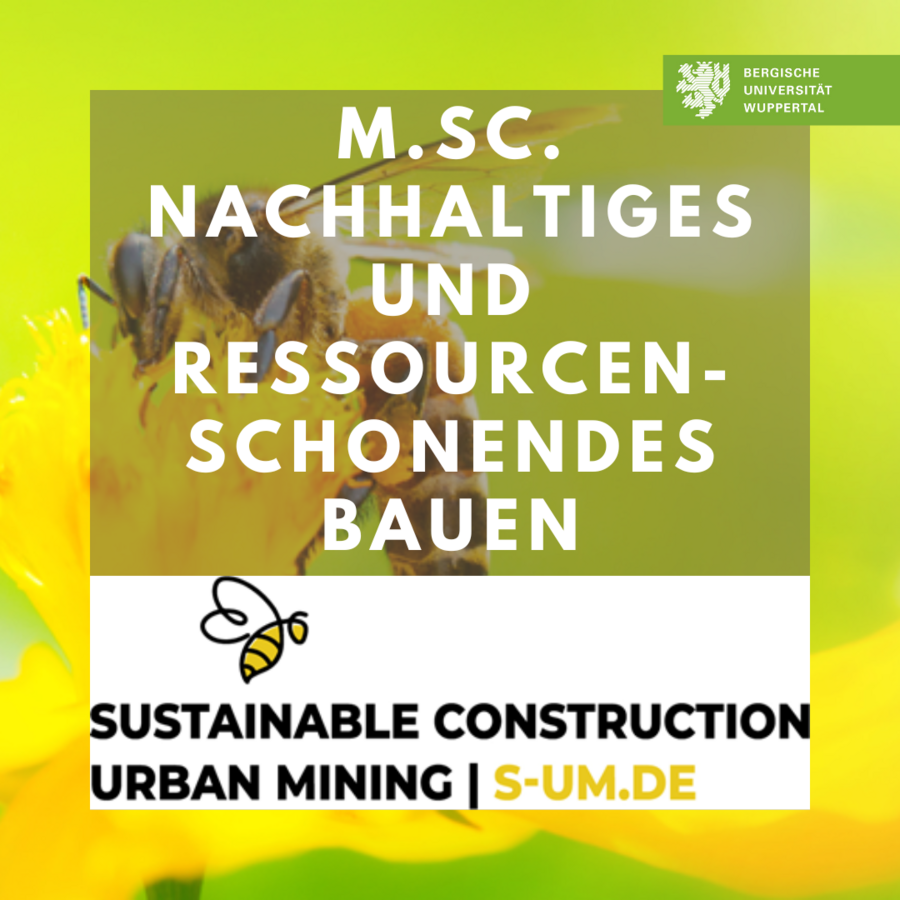
Master of Science in Sustainable and Resource-Efficient Construction
Today, humanity's global ecological footprint is already larger than the Earth's available resources can sustain. In 2022, nature's resource budget for the entire year was already exhausted on August 1, Earth Overshoot Day. Thirty years ago, this day still fell on October 9. The construction industry is a resource-intensive sector. In Germany alone, more than 500 million tons of mineral raw materials are used every year. From construction steel to cement: the Federal Environment Agency puts the amount of material used in German buildings at 15 billion tons.
Valuable resources, because sand and other raw materials such as copper are already becoming scarce. Anyone who wants to plan and build the future in a sustainable and resource-saving way can learn how to do so at the University of Wuppertal. The part-time Master's degree course in sustainable and resource-conserving construction (sustainable construction | urban mining) trains specialists and managers who can help shape and develop the transformation process from a resource-intensive construction industry to a sustainable circular economy in the construction industry.
